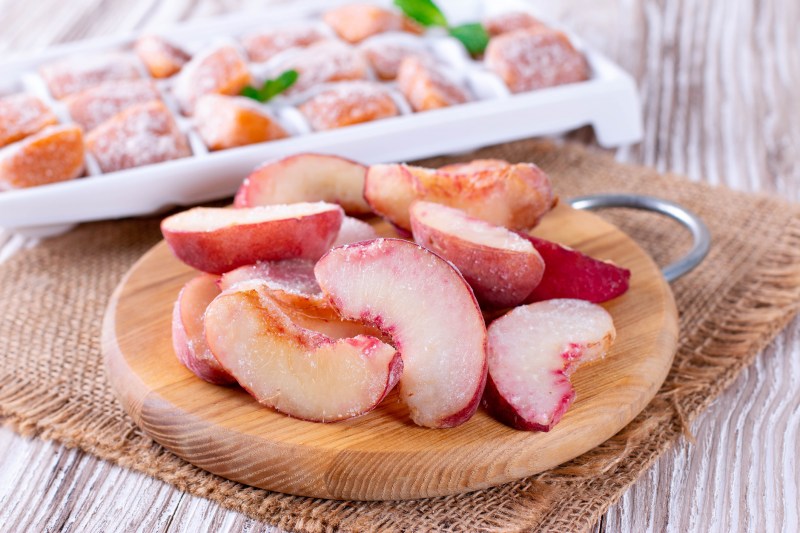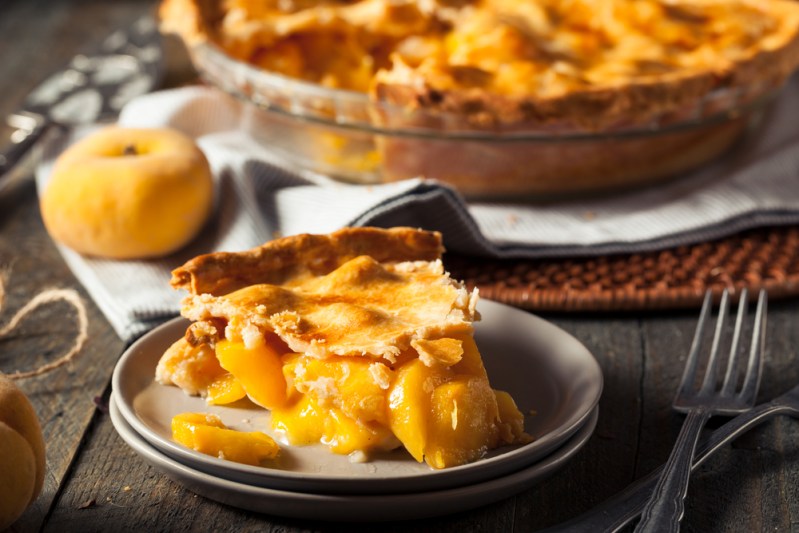
Nothing says summer — even in the winter — like a fresh and juicy peach. Yellow, white, donut, nectarine peaches are at the pit of our warm weather daydreams. From savory to sweet peaches are perfect in pies, smoothies, salsas, and jams. It’s hard to run out of ways to use fresh peaches and when life hands you one, you eat it. And if you can’t finish your peaches? You freeze them! For those bigger bushel times when you find yourself in a peach, here’s how to freeze and preserve those fresh peaches so you can have summer in any season.
Related Guides
How to freeze fresh peaches
Freezing peaches is as simple as you might think. Depending on how you would like to use them later, peaches can be frozen whole or blanched, peeled, or sliced beforehand. However, it’s perfectly fine (and faster) to freeze peaches sliced and with the skin on. Also, try sprinkling the peaches with a little sugar or cinnamon before for a premade snack or pie base, or leave them as they are for a blank peach canvas to paint with later. Don’t skip the lemon juice though; this is key to keeping that bright orange peachy hue.
What You’ll Need:
- Large bowl
- 1 lb fresh peaches, sliced
- 1 tablespoon fresh lemon juice
- Tray
- Parchment paper
- Gallon-size freezer bag
Method:
- In a large bowl, toss sliced peaches in the fresh lemon juice.
- Line up the peaches on a parchment paper-lined tray and freeze until they’re solid.
- Place the frozen peaches in an air-tight freezer-safe bag and return the bag to the freezer.
How Long Can You Freeze Peaches?

You can store peaches for around three months before they start to get a little freezer burn. When you are ready to eat the frozen peaches you can use them the same was that you would if they were fresh off the tree. No need to defrost, feel free to grab them straight out of the bag! They’ll be great for baking in pies or cobblers, in smoothies or cocktails as a replacement for ice, as a quick snack post-workout snack, or sautéed and on top of a big juicy pork chop.



